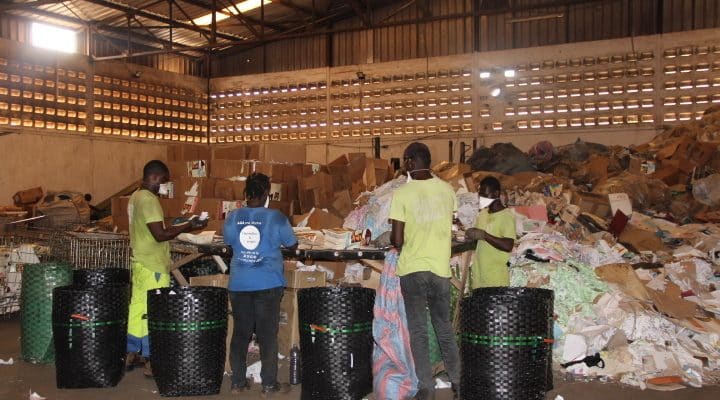With the theme "social and inclusive entrepreneurship, a vector of solutions for waste prevention and management", a call for projects launched by the French Development Agency (AFD) has enabled the "Moi Jeu Tri" initiative to obtain 1.1 million euros. This funding will enable the collection and recovery of end-of-life appliances in the city of Lomé in Togo, where the company is supporting the ecological transition, as well as in Ivory Coast.
In Togo, the non-governmental organization (NGO) “Moi Jeu Tri” will rid the city of Lomé of 1 052 tonnes of waste electrical and electronic equipment (WEEE) by 2025. This includes old phones, computers, televisions, modems, refrigerators, microwaves and used toys.
These appliances will be collected initially in the neighbourhoods and industrial sites of the Togolese capital before being repaired or recycled by 132 young engineers who will be recruited in partnership with the Togolese Ministry of Primary, Secondary and Technical Education and Handicrafts, the African Development Bank (AfDB) and the Togolese branch of the United Nations Development Programme (UNDP).
The “Moi Jeu Tri” initiative is financed to the tune of 1.1 million euros (more than 721 million CFA francs) by the French Development Agency (AFD) within the framework of its Sectoral Innovation Facility for Non-Governmental Organisations (FISONG). This project, led by Edem d’Almeida, General Manager of African Global Recycling (AGR) and Paul Testard, General Delegate of “Moi Jeu Tri”, will extract the lead, cadmium, mercury and palladium contained in these old appliances. These toxic substances are the cause of air pollution and cancer in humans, according to Ambroise Kpondzo, the director of the West African Environment Observatory (WAO).
Read also-
This is why the Togolese government is working on a policy for the sustainable management of its waste. Indeed, the West African country, along with Senegal, Ghana, Gambia, Benin, Guinea, Sierra Leone and Nigeria, illegally imported 2,500 tonnes of WEEE in 2020, as identified by the Spanish Civil Guard, including spare parts for vehicles and obsolete household appliances.
Benoit-Ivan Wansi






